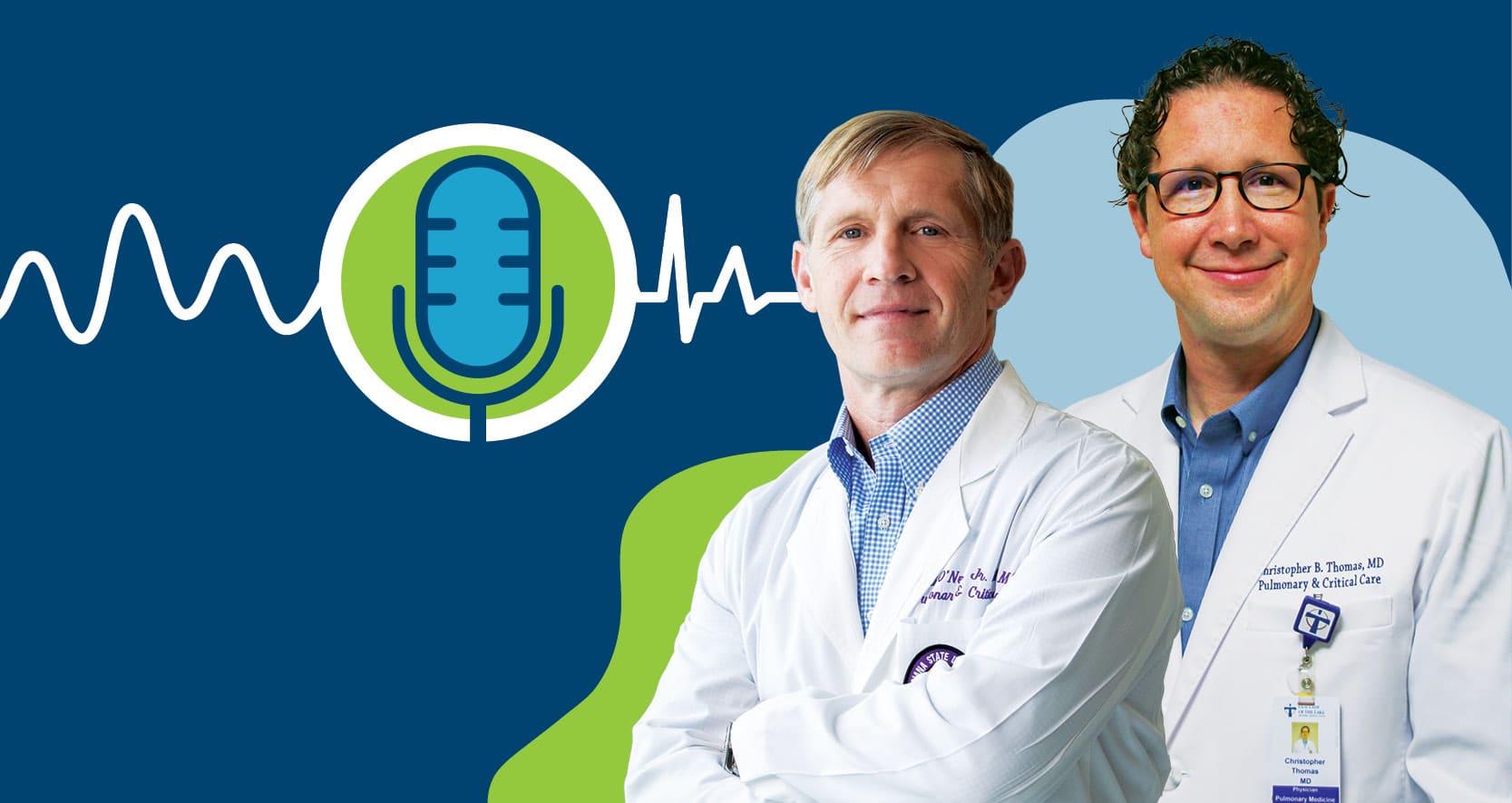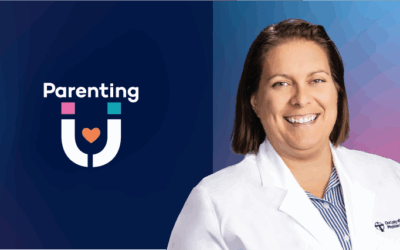Sepsis is a life-threatening condition, the leading cause of death in hospitals.
In this episode of The Doctor Will Hear You Now podcast, we learn about groundbreaking research and an innovative breakthrough at our health system poised to transform sepsis detection and care.
Hollis “Bud” O’Neal, MD, medical director of research at Our Lady of the Lake Health, and Christopher Thomas, MD, medical director of quality and patient safety for Franciscan Missionaries of Our Lady Health System, join us to share about their work to improve sepsis detection and management.
Understanding Sepsis
According to the Sepsis Alliance, approximately 30 million adult patients in the U.S. go to the emergency room each year showing signs and symptoms of an infection. Around 1 in 5 of those emergency room patients are at risk of sepsis. Sepsis kills more than 270,000 adults in the U.S. each year, according to the Sepsis Alliance.
Sepsis is when the immune system overreacts to a serious infection, attacking more than just the infection itself. Super aggressive and deadly, sepsis can damage tissue and vital organs if not treated early. It also shares symptoms with other infections, making it difficult to diagnose — and there has yet been a “gold standard” test to check for sepsis. The condition impacts families in the blink of an eye, and survival rates are unfortunately low.
Our Innovative Research
Not everybody will overreact to an infection, so researchers at Our Lady of the Lake worked to determine who will have an overreaction before it happens. The goal is to diagnose sooner to treat those who have sepsis as well as get patients home more quickly to reduce their risk of getting sicker by getting sepsis from a hospital-acquired infection.
Living on the Gulf Coast we understand hurricanes. Dr. O’Neal compares sepsis to a storm and forecasting.
“Imagine if we only defined a hurricane by the damage it caused, the people whose houses were destroyed, it’s a little late,” he says. “We want to tell them a terrible storm is coming, and we need to prepare for it.”
It’s also important to be able to say when a storm is just a thunderstorm, in which case doctors wouldn’t need to expend so many resources to treat an infection that isn’t sepsis. That’s just what this new test does: help determine who has sepsis so they can get faster treatment and better outcomes.
Partnership Leads to Innovative Test
A serendipitous interaction on an airplane in 2014 eventually led to a clinical partnership between biotech startup Cytovale, the team responsible for the IntelliSep detection technology, and Our Lady of the Lake Health.
“You never know who you’re going to sit by,” Dr. O’Neal says. “Always be willing to strike up a conversation. You never know what random interaction may impact you down the road.”
The incredibly diverse Baton Rouge patient population was willing to help with this research.
“We’re blessed to live in a community that is committed to learning from the research,” Dr. Thomas says. “And we’re blessed to have extraordinary people working on quality, safety and infection prevention, people here who are committed to listening.”
Across the years and over a number of studies that research led to the development of IntelliSep, a test to detect sepsis that received FDA clearance in January. Results can come back within 10 minutes allowing providers to more confidently decide how to treat.
How We Elevate Listening
“The first step in detecting and treating sepsis is the listening,” Dr. Thomas says. “And the second step is the healing. In order to be able to do that effectively sometimes you need to innovate.”
Dr. Thomas and his team balance their use of technology with active listening. “By using an innovative technology, we can come back and have a confident conversation with the patient while listening,” he says. “We are confident that we are on the right track to healing you.”




